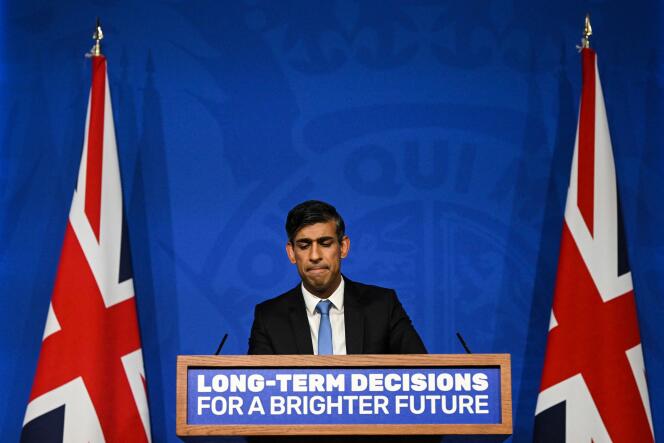


Two years ago in Glasgow, Scotland's economic capital and host of COP26, an inspired Boris Johnson compared world leaders to James Bond in the race against global warming. In front of an impressive array of leaders – Joe Biden, Emmanuel Macron, Ursula von der Leyen, Prince Charles – he reminded Western countries of their responsibilities as polluters and even quoted Greta Thunberg, denouncing "blah, blah, blah" and empty promises.
This year, for COP28 in Dubai, which begins on Thursday, November 30, Charles III – now King – will once again be making the trip. He is expected to deliver the conference's inaugural speech, but this time it is Prime Minister Rishi Sunak who will accompany him to represent the UK, Johnson having been ousted from Downing Street by a slew of scandals last year. His successor has made a name for himself on the international stage with his seriousness and pragmatism, but he doesn't share his interest in the environment. Initially indifferent, in recent months he has even attempted to use the country's climate objectives for political ends, in the hope of regaining public favor, as his Conservative party remains highly unpopular.
Until now, the country had been leading the way: It had invested heavily in renewable energies, notably offshore wind power in the 2010s, had almost abandoned coal and was the first, in 2019, to enshrine in law its commitment to achieving carbon neutrality by 2050. But in late 2022, Sunak, fresh into office, authorized the reopening of a coal mine. Since then, he has promoted the award of dozens of fossil fuel licenses in the North Sea and, last September, chose to delay the ban on the sale of new petrol and diesel cars from 2030 to 2035, and abandoned the ban on the sale of gas boilers by 2035 as well as the obligation on landlords to improve the energy efficiency of their rentals.
The Conservative prime minister says he wants them to be the "party of motorists" and has stated that there is no question of abandoning the country's commitments, but that it is about complying with them in a "more pragmatic, proportionate and realistic" way for Britons. Of course, the goal of carbon neutrality by 2050 remains, as does the highly ambitious milestone of a 68% reduction in CO2 emissions by 2030, but the path to meeting these targets now looks uncertain: even before the government's renunciations in the summer, the Climate Change Committee was concerned about an insufficient national effort.
You have 45% of this article left to read. The rest is for subscribers only.
